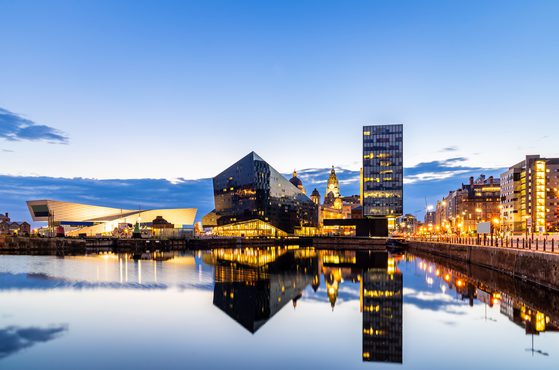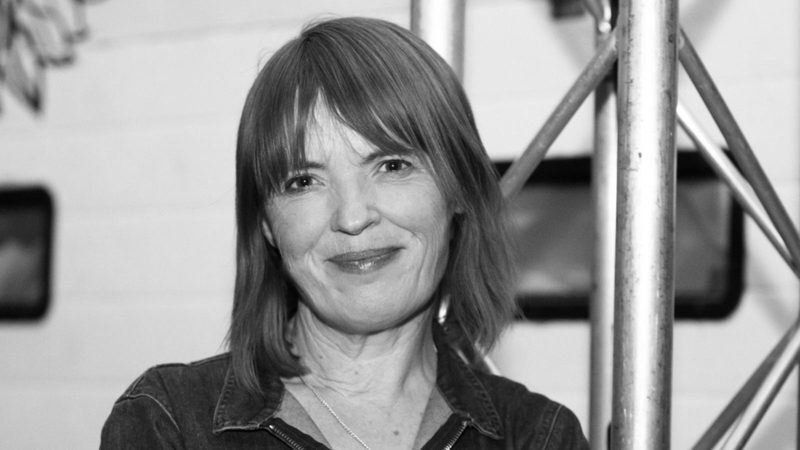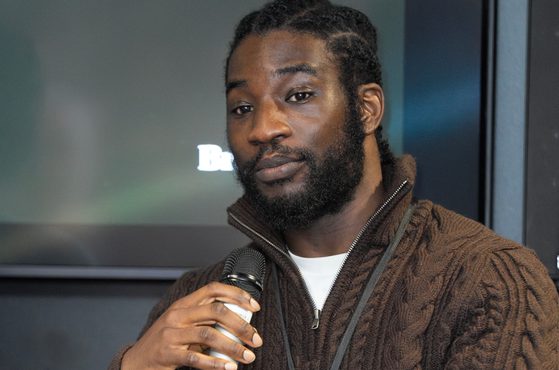The Liverpool City Region has undergone a cultural and economic transformation over the past two decades, with culture playing a central role in shaping its identity, confidence and future. As Liverpool City Council’s Director of Culture & Major Events, Claire McColgan has been at the heart of that journey — from Liverpool’s European Capital of Culture programme in 2008 to driving international events like Eurovision, as well as shaping long-term strategies for regeneration, tourism and place-making.
We spoke to Claire to find out more.
Set deadlines to get serious about delivering change
When I first arrived in 1989, Liverpool was seen as a city with few prospects. People my age were leaving and what remained was a sense of stagnation. I’d grown up in Corby, a steel town that had gone through a similar managed decline, so I understood the feeling.
Although significant European funding in the 1990s certainly helped reshape the physical infrastructure of the city, it was a mindset shift that really transformed Liverpool — crystallised through our bid to become European Capital of Culture, which we won in 2003. That process reminded people in the city about our existing cultural strength, our heritage and our story. It also forced us to get serious about regeneration, quickly.
You can talk for years about strategies but nothing drives delivery like a deadline. We had five years to get everything in place before our year as Capital of Culture in 2008. That need for accelerated change created the conditions for collaboration. Developers came on board with serious investment, and we strategically aligned with Manchester, who had just hosted the Commonwealth Games. That kind of grown-up collaboration between northern cities is something we should lean into more today.
Taking a place-based approach
Culture can’t be a bolt-on. It has to be central to a successful place-led strategy in order to develop infrastructure and international partnerships. Since 2008, that focus has stayed central to Liverpool’s regeneration story and helped to reshape the city’s global image. It meant that when the UK had the opportunity to host Eurovision on behalf of Ukraine in 2023, it was inevitably Liverpool that was chosen to fly that joint flag. That moment showed our creativity alongside our compassion –– two attributes that this city is known for.
We’re now taking our learnings to Southport, which has been hit hard by a long-term decline in hospitality and tourism, exacerbated by last year’s awful tragedy. We're exploring a “mini-City of Culture” approach to reignite pride and footfall. It’s creatively fascinating because it’s not about major stadiums or cruise ships, it's about rebuilding confidence in a place that’s very different from central Liverpool.
In short, successful place-making must be place-specific. Southport isn’t Liverpool, nor is St Helens or Birkenhead. You can’t treat them like mini clones. Even within the Liverpool City Region, every place has its own story, audience and future. And it’s the same across the North. While we can bring people together in all parts of the region to collaborate and scale impact, homogenising culture doesn’t work. It must be deeply rooted in local identity, told with care and shaped by people who live it every day.
I’m often asked what other places should copy from Liverpool. My honest answer is don’t copy. This year, we’ve seen Bradford as City of Culture bring more than one million people to the city. Activity has particularly focused around the city’s multiculturalism, while it has also undergone major regeneration and town centre pedestrianisation. It’s a story of adapting for the future, while celebrating what is authentic about Bradford — not copying anywhere else.
Transformation must be authentic, inclusive and future-facing
Business partnerships are essential for ideas that celebrate culture. We work closely with local suppliers and cultural venues, but we want to go further in terms of a closer relationship with the city’s business community. One of our most exciting upcoming projects is with Universal Music, exploring how we build on the Beatles’ legacy in a forward-facing way. Similarly, the new Everton stadium is going to reshape the North of the city, and we need to make sure that happens in a way that includes, not displaces, the businesses already there.
At its heart, my job — and really the job of anyone in a leadership position, managing something much bigger than themselves — is about being a custodian. We’re not here forever, so the goal is always to leave the places and organisations we steward in a better place than we found it. For business leaders in the True North network, my message therefore is to ensure you understand the story of the places you operate in and ask how you can positively contribute to its future.
My advice to purpose-led businesses:
- Never stand still: Leaders can’t afford to become complacent. You always need to remain open to ideas — especially the wild ones. You never know what blue-sky suggestion will turn into the next transformative project.
- Be true to yourself: Look to others for ideas and inspiration but implement them in your own way. One that is authentic to your story. In Liverpool, we never try to be somewhere else. We look at good ideas and make them our own, and hopefully we inspire others to do the same.
- Embrace storytelling: We are all in the business of telling stories — about who we are, where we’re going, and why people should care. Whether you’re a council, a cultural organisation, or a business, you need to articulate your narrative clearly and ambitiously, to inspire others.
If, like Claire, you’re committed to supporting the future of the North – we invite you to join our growing collaborative network of purpose-driven leaders.


